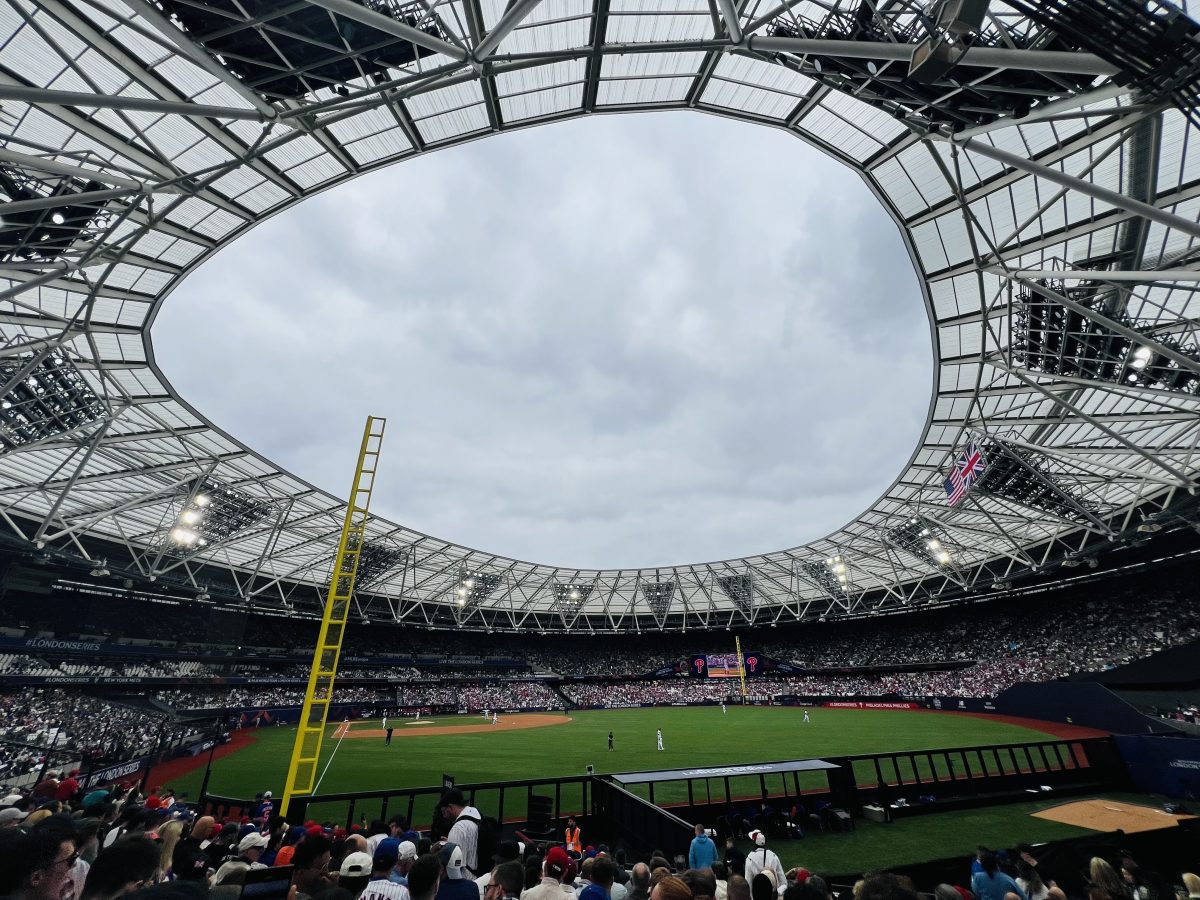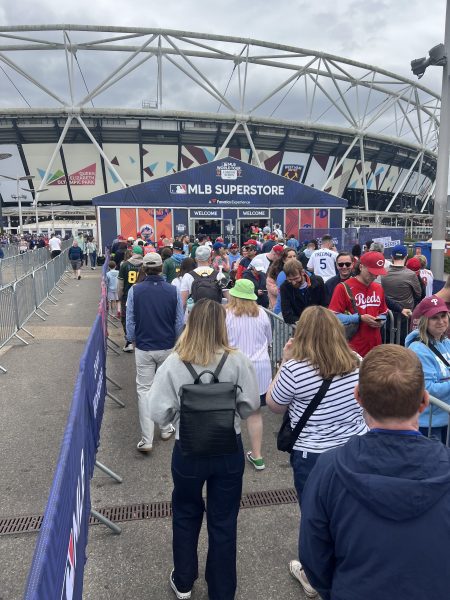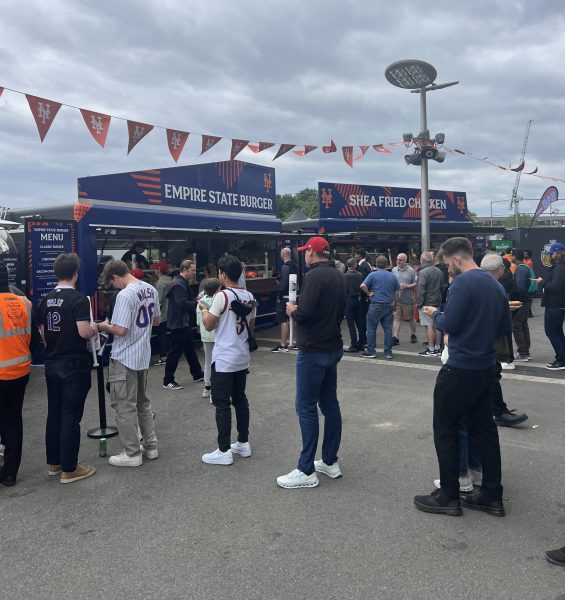



London Stadium was transformed from a football pitch to a baseball field for the London Series between the Mets and Phillies. (Photo: Chris R. Vaccaro/World Baseball Network)
LONDON – Elaine is from Brooklyn and moved to France years ago, so when the Mets were picked to play in the London Series, she was excited to reconnect with her New York roots abroad.
Kieran is from Ireland but lived in Bayside, Queens, for a few years and became a Mets fan before settling back in the U.K.
“I love seeing the Mets here,” he said. “I love watching them play, and we couldn’t pass up this opportunity. It’s a great venue.”
Yusaf brought his 3-year-old son to the game to see something new. Tony, an American, was already traveling to Europe and had gotten tickets since the timing was perfect. Ben, another American, studies abroad in London and was at a baseball game for the first time since high school when he attended countless Cubs games.
These stories are personal, and I asked as many people as possible why they were at the game. It was a deep connection for many baseball fans who journeyed to London Stadium—the home of West Ham United from the Premier League—to watch the Mets and Phillies in the latest leg of Major League Baseball’s World Tour.
London is the latest in a series of cities outside the United States, including Santo Domingo, Seoul and Mexico City, to showcase baseball’s global growth. It’s safe to say there is an appetite for continued experimentation with regular-season games in foreign countries.

Perhaps the hottest spot in the stadium was the MLB Superstore, the only spot on the grounds to buy commemorative swag. (Photo by Chris R. Vaccaro/World Baseball Network)
When fans first walked into the stadium, they were not met with the same smells as an American ballpark, but event organizers tried to capture the spirit. From ballpark staples like oversized hotdogs and nachos and regional favorites like pizza and cheesesteaks to the giant pop-up shop with the stereotypical overly merchandised nature of fandom, you could see the recreation of what appeared to be any big sporting event in America.
Another difference from American ballparks? The sounds. Food vendors were silent as they roamed the stands, hawking products. Since the capacity is larger, it makes for a slightly more cavernous relay of sounds and sights, though the packed stands did elicit loud and enthusiastic cheers at the correct times and for the right reasons. Even with it being a neutral site, both teams were supported by locals and traveling fans.
There were countless jerseys, hats, and shirts representing nearly every Major League club, a mosaic of baseball fandom. It didn’t matter if you liked the Mets or Phillies; it was about the game. The London Series connected 108,000-plus fans to baseball. London Stadium is not just a soccer stadium; it’s a ballpark.
There was something oddly familiar about dropping myself into an American scenario abroad, but this time, I didn’t have to drive one hour west on the Long Island Expressway to Citi Field. I flew across the pond for baseball. The ultimate baseball road trip.
During one break between innings, Journey’s “Don’t Stop Believin’” was playing. Kieran from Ireland turned to me and said this would never happen in a soccer match.
“Too rigid, not enough entertainment,” he said.
He quipped about the lack of screens and scoreboards, which, like many other aspects of American culture, are bigger and more in-your-face.

At a ballpark, nothing screams America like hotdogs, burgers, chicken, and nachos. (Photo by Chris R. Vaccaro/World Baseball Network).
He also explained the differences between stadium safety and the potential for violence and inappropriate fan interactions. Although he prefers not to take his son to Premier League matches, he was quick to bring the family to the Mets-Phillies game because he knew it would be like his days in Flushing.
Coverage of the London Series was robust and consistent on digital and social media, but it appeared like any other weekend in London for many. It’s a big city with plenty of soccer stadiums. Not everyone was caught up with baseball. After asking several cab drivers, bartenders, and patrons about the Series, many had no idea what I was talking about. One cab driver flat out drove away after I asked to go to London Stadium to see the baseball game.
I keep thinking the event was not specifically for someone like me, an American who loves the game. It was for the British audience and anyone from Europe willing to commute to the UK for the series. MLB International continues to push the boundaries and grow the game. More baseball. More countries. More reasons to evolve international fandom and generate interest and cultural exchange far beyond our typical domestic walls. America’s Pastime afar.
Chris R. Vaccaro is the senior editorial advisor of World Baseball Network and lives on Long Island.